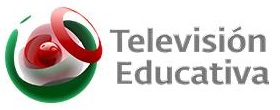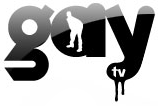
The Turkish Radio and Television Corporation is the national public broadcaster of Türkiye, founded in 1964. TRT was for many years the only television and radio provider in Turkey. Before the introduction of commercial radio in 1990, and subsequently commercial television in 1992, it held a monopoly on broadcasting. More recent deregulation of the Turkish television broadcasting market produced analogue cable television. Today, TRT broadcasts around the world, including in Europe, Middle East, Africa, Asia, the United States, and Australia.

The BBC Learning Zone was an educational strand run by the BBC as an overnight service on BBC Two. It broadcast programming aimed at students in Primary, Secondary and Higher Education as well as to adult learners. Viewers are encouraged to watch programmes after the original broadcast via the use of, originally VHS, then later DVD. In 2015, the BBC confirmed that due to budget cuts, the service would no longer be running.

TRT 1 is the first Turkish national television channel, owned by state broadcaster TRT. It was officially launched on 31 January 1968 as a test broadcast. It was the only channel with the logo TV1 in Turkey until 15 September 1986, when TRT launched TRT 2 using the logo TV2. It is also available in Azerbaijan on terrestrial television.

Dirección General @prende.mx, formerly known as Dirección General de Televisión Educativa, is the producer of educational programs of the Secretariat of Public Education of Mexico with origins dating back to 1968. Which are broadcast on the Edusat, an educational television network. Edusat is an portmanteau of "education" and "satellite".
TRT 3 is a Turkish television channel. It mostly broadcasts sport events.

Gay TV was an encrypted subscription channel from the UK that broadcast over Sky and Virgin Media television platform from 20:00 to 05:30 daily, targeted at gay men.

RTV21 is a broadcaster and media company based in Pristina, Kosovo, which includes a radio, a television station, and six sister stations. Its launch in online radio made it the first Albanian station to air over the internet.

TRT 4 was a Turkish television program. Before 2008, it was a TV station which broadcast cultural and educational programs in Turkey.

TRT INT was a Turkish television station part of the TRT.

China Education Television (CETV) is an educational TV station in the People's Republic of China. Its first broadcast was on October 1, 1986. Its function is to provide Chinese people with educational programs, similar to PBS in the United States or NHK Educational TV in Japan.
TRT Çocuk is a Turkish television station, part of the Turkish Radio and Television Corporation, which can also be received in Azerbaijan. It broadcasts a wide range of programming for children such as cartoons, drama and entertainment 24 hours a day. Previously, the channel broadcast until 21:00 TRT, and broadcast TRT Okul until 06:30 from 2011 to 2017.
TRT Türk is the international TV channel of the TRT, which is broadcast to other countries. TRT Türk's task is to enhance the understanding of the possibilities Turkey and Turkic republics may possess or take advantage of in various fields through the programs aiming at the Caucasus and Central Asia. The task is also promoting the image of Turkish people in a multi-dimensional way. TRT Türk has been intended to become the Turkic World's common channel. Within this framework the channel is planning to schedule programs produced by other Turkic republics along with joint-productions.

TRT 2 is a Turkish culture and art television channel.

Sangsad Bangladesh Television, often known as Sangsad Television, branded on-air as Sangsad Bangladesh, is a Bangladeshi state-owned parliamentary television channel, which is the sister of Bangladesh Television. It was launched on 25 January 2011, and broadcasts live from the National Parliament of Bangladesh.
TRT World is a Turkish public broadcaster which broadcasts in English 24 hours a day and is operated by the TRT and based in the Ulus quarter of Ankara. It provides worldwide news and current affairs focusing on Turkey, Europe, Africa, and Western and Southern Asia. In addition to its headquarters based in Ankara, TRT World has broadcasting centres and studios in Washington, D.C. and London. It is a member of the Association for International Broadcasting.
Livestreamed news refers to live videos streams of television news which are provided via streaming television or via streaming media by various television networks and television news outlets, from various countries. The majority of live news streams are produced as world news broadcasts, by major television networks, or by major news channels; however, there are some live news streams which are produced by individual local television channels as well.

The COVID-19 pandemic affected educational systems across the world. The number of cases of COVID-19 started to rise in March 2020 and many educational institutions and universities underwent closure. Most countries decided to temporarily close educational institutions in order to reduce the spread of COVID-19. UNESCO estimates that at the height of the closures in April 2020, national educational shutdowns affected nearly 1.6 billion students in 200 countries: 94% of the student population and one-fifth of the global population. Closures are estimated to have lasted for an average of 41 weeks. They have had significant negative effects on student learning, which are predicted to have substantial long-term implications for both education and earnings. During the pandemic, education budgets and official aid program budgets for education have decreased.
Eğitim Bilişim Ağı or EBA is an educational content network in Turkey, founded by the Ministry of National Education. The site is designed and run by the Innovation and Educational Technologies General Directorate, which is affiliated with the Ministry. The purpose of the network is the integration of technology to education when required, and the network gives online access to course materials to teachers and students under the FATİH project. Parents and teachers can also access EBA.

On 12 March 2020, all schools, colleges, and childcare facilities in the Republic of Ireland were shut down in response to the COVID-19 pandemic. The shutdown resulted in the cancellation of the 2020 Leaving Certificate and 2020–2021 Junior Certificate examinations, as well as all 2020–2021 Irish language summer courses in the Gaeltacht.
This is a timeline of the broadcasting of schools programmes on television in the UK.













